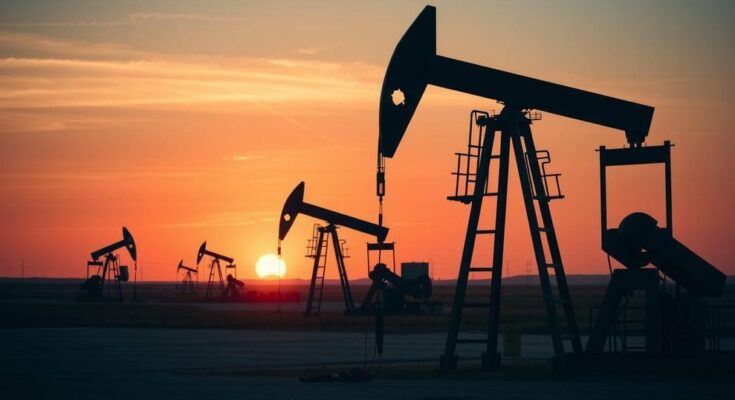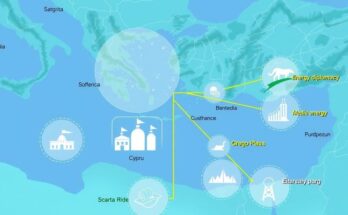South Sudan has resumed oil production after a year-long shutdown due to conflict in Sudan, starting January 8, 2025. The government views this as a potential economic lifeline, although skepticism exists regarding its benefits to the general populace. Analysts highlight concerns over corruption, poor governance, and the country’s heavy reliance on oil, urging economic diversification.
South Sudan, the world’s newest nation, has recommenced oil production following nearly a year of inactivity due to the ongoing turmoil in neighboring Sudan. The resumption, which started on January 8, 2025, has generated both optimism and doubt amidst the nation’s ongoing economic struggles characterized by chronic corruption and institutional weaknesses. Puot Kang Chol, South Sudan’s petroleum minister, expressed hope for the economy’s recovery with this development, noting that resources would be made available once again.
Chol confirmed that the Dar Petroleum Operating Company (DPOC), which manages South Sudan’s oil production, has resumed operations. Although the South Sudanese government holds only an 8% stake, its financial reliance on oil exports, which provide over 90% of national revenue, remains significant. The government anticipates a phased oil output beginning with 90,000 barrels per day, significantly lower than previous levels.
Historically, South Sudan has depended on pipeline routes through Sudan to export oil globally, reflecting an interdependence between the two nations following South Sudan’s secession in 2011. As the South Sudanese government welcomes the resumption as vital amidst economic distress, experts caution that the broader public may not experience the promised benefits. According to analyst Boboya James Edimond, although the government may benefit, historical context suggests that oil revenues often exacerbate corruption and societal inequality.
Freelance journalist Patrick Oyet pointed out that previous oil production failed to lift South Sudan’s population from pervasive poverty and inflation, with many public servants lacking salaries for over a year. Even with oil flows, economic hardship remained severe due to high taxes, a struggling economy, and government inefficiency. The nation’s GDP has contracted 5% since the outbreak of conflict in Sudan, with a staggering 70% decline in the oil and gas sector.
With a national budget significantly lower than neighboring countries, South Sudan’s economic health remains precarious. Poor governance has further complicated the oil industry, leading to diminished international investment opportunities. Edimond emphasized the necessity for South Sudan to diversify its economy beyond oil into sectors like gold mining and agriculture, as reliance on oil leaves the nation vulnerable to external shocks.
Moreover, Edimond warned that oil proceeds may be misappropriated to fund factions in Sudan, particularly the Rapid Support Forces (RSF) involved in ongoing conflict. The situation in Sudan not only affects South Sudan economically but also poses political challenges, compelling South Sudan to maintain stable relations with various militias to ensure the uninterrupted flow of oil through pipelines.
While the restart of oil production presents a glimmer of hope for South Sudan’s ailing economy, it is fraught with risks associated with corruption and mismanagement. Edimond succinctly stated that optimism hinges upon the government’s commitment to utilize oil revenues effectively to combat poverty and improve living conditions for its citizens.
The ongoing conflict in Sudan has critically impaired South Sudan’s economy, primarily reliant on oil production. Following a year-long shutdown of oil operations, the South Sudanese government has restarted production, spearheaded by the Dar Petroleum Operating Company (DPOC). Despite potential economic benefits, systemic issues such as corruption, poor governance, and dependency on oil exports raise questions about the true impact on the populace and the country’s future economic stability.
The resumption of oil production in South Sudan presents mixed prospects for the economy. While the government views it as crucial for recovery, skepticism abounds regarding its efficacy in alleviating poverty and improving living conditions for the population. Experts emphasize the need for transparency in the management of oil revenues and diversification of the economy to mitigate the adverse effects of historical corrupt practices and political instability.
Original Source: www.dw.com




